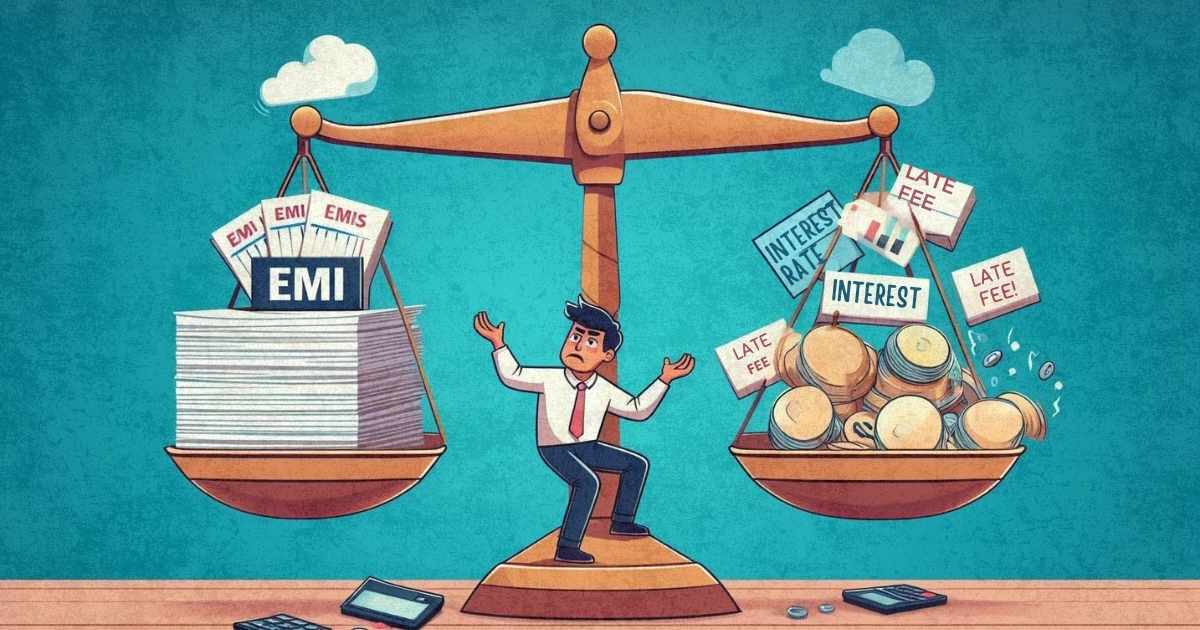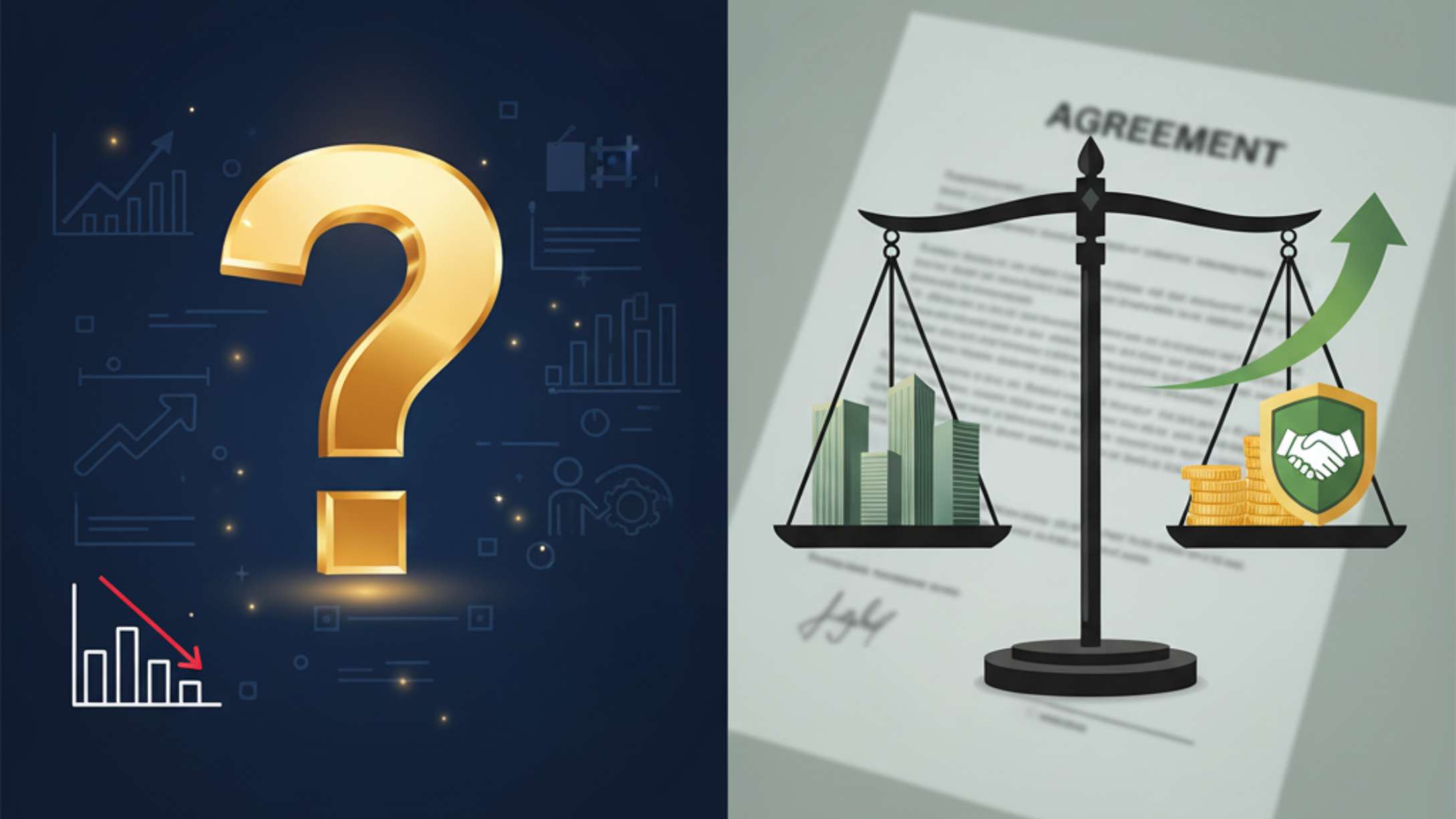· Loan Settlement · 5 min read
Lost Your Job and Can’t Pay EMIs? Here’s How to Handle Loan Defaults Legally
Struggling to pay EMIs after job loss or illness? Learn your legal rights, RBI relief options, and smart ways to manage loan defaults without fear of harassment.
.WPyFdNSA.jpg)
Life doesn’t always go as planned. A sudden job loss, a serious illness, or a medical emergency can shake even the most financially stable individuals. When income stops but EMIs continue, loan defaults may seem inevitable.
The good news? Indian law protects you.
Loan default due to genuine financial hardship is not a crime — and you have legal and ethical options to manage, restructure, or even settle your debt without harassment or fear.
This guide will help you understand what to do if you’ve defaulted on a loan due to job loss or illness, how the RBI protects borrowers, and the legal steps you can take to regain financial control.
1. Understand That You’re Not Alone — and You’re Not a Criminal
First and foremost: loan default is not a criminal offence in India. It’s a civil matter.
Banks can take legal action for recovery, but they cannot arrest you, threaten you, or defame you for being unable to pay.
Most defaults happen due to genuine causes — job layoffs, medical expenses, or delayed salaries. The Reserve Bank of India (RBI) recognizes such situations and has created frameworks to protect borrowers facing hardship.
So, if you’ve missed a few EMIs, don’t panic and don’t hide from your lender. There are proper legal and financial channels to resolve it.
2. Inform the Lender About Your Situation Immediately
The biggest mistake borrowers make is avoiding communication.
Instead, you should proactively inform your bank about your situation — in writing (email or letter).
Explain:
● The reason for your financial difficulty (job loss, illness, medical treatment, etc.)
● How long you expect the situation to last
● Your willingness to repay through a restructured plan
Request options such as:
● Moratorium: A temporary pause on EMI payments
● Loan restructuring: Adjustment of tenure or EMI amount
● Settlement: For severe financial distress
This shows good intent, helps you avoid default classification, and makes your lender more cooperative.
3. RBI’s Framework for Resolution of Stressed Loans
The RBI’s Resolution Framework for Stressed Loans (initially introduced during COVID-19) still guides banks to assist borrowers under financial stress.
Under this framework:
● Banks can restructure personal loans due to job loss, illness, or financial shocks.
● You can apply for restructuring with valid proof such as a termination letter, hospital bills, or income loss declaration.
● Your EMIs can be reduced, deferred, or rescheduled for a certain period.
This ensures you’re not declared a “defaulter” immediately and get the breathing space to recover financially.
4. Know Your Rights Under RBI’s Recovery Guidelines
Even if you’ve defaulted, lenders must follow strict recovery norms laid down by the RBI’s Fair Practices Code.
Here’s what every borrower should know:
✅ Recovery agents can call only between 8 a.m. and 7 p.m.
✅ They cannot threaten, abuse, or humiliate you.
✅ They cannot contact your relatives, neighbors, or employer.
✅ They cannot use WhatsApp groups, social media, or public shaming tactics.
✅ They must show proper authorization ID when visiting.
If these rules are violated, the lender can be reported to:
● The Bank’s Grievance Redressal Officer (GRO)
● The RBI Ombudsman (cms.rbi.org.in)
● Consumer Protection Forums
These guidelines ensure borrowers are treated with dignity, fairness, and respect.
5. Explore the Option of Loan Settlement
If your financial condition has permanently changed (due to long-term job loss or medical incapacity), you can consider a One-Time Settlement (OTS).
Under OTS:
● The lender accepts a reduced lump-sum payment instead of the full amount.
● Once paid, the account is marked as “Settled” (not “Written Off”) in your credit report.
● You receive a No Dues Certificate and are no longer pursued for recovery.
6. File a Complaint if You’re Harassed
Unfortunately, many borrowers face illegal recovery tactics — abusive calls, threats, or visits to family or workplace. These acts are strictly prohibited under RBI and Indian law.
If you experience harassment:
You can file complaints with:
● Bank’s Principal Nodal Officer (PNO) — for first-level complaints
● RBI Ombudsman Portal → https://cms.rbi.org.in
● Cyber Crime Cell → https://cybercrime.gov.in (for WhatsApp/online threats)
● Consumer Forum , for mental harassment or privacy violation
● National Commission for Women (NCW) — if female borrowers face verbal or personal threats
Attach screenshots, call recordings, messages, or CCTV footage as evidence.
Remember , banks are accountable for the behavior of their recovery agents.
Don’t Wait — Seek Legal Help Early
If the situation feels overwhelming, consult a legal expert early.
A lawyer specializing in loan default and debt resolution can:
● Communicate with lenders on your behalf
● Draft formal notices or complaints
● Negotiate settlements or restructuring legally
● Stop harassment through official intervention
Platforms like ExpertPanel.org connect borrowers with experienced financial lawyers who handle such matters across India.
Getting timely legal support prevents escalation , and helps you settle debt peacefully, legally, and with dignity.
Conclusion
A loan default caused by job loss or medical emergency is not the end of your financial journey.
It’s a challenge , but one that can be managed with transparency, communication, and legal awareness.
Remember:
● You are not a criminal.
● You are protected under RBI and Indian law.
● Relief options , restructuring, settlement, and legal remedies are available.
Disclaimer
The information shared in this blog is for general awareness only. Every individual’s situation may differ, and the actual process or outcome can vary based on personal and legal circumstances.
FAQs
1. Can I be arrested for not paying a personal loan?
No. Loan default is a civil matter — not a criminal offence. You cannot be arrested unless fraud is proven.
2. Will loan restructuring affect my credit score?
Yes, slightly — but it’s better than default. With timely payments after restructuring, your score can recover in 6–12 months.
3. Can I request a moratorium on EMIs?
Yes. You can request a temporary moratorium or reduced EMI plan by explaining your financial situation to the lender in writing.
4. What documents do I need to apply for restructuring?
Submit income proof, job termination letter, medical bills, or any evidence showing financial hardship.
5. Who can help me negotiate a fair loan settlement?
Legal debt experts and settlement panels at ExpertPanel.org can help you communicate with lenders, negotiate reduced settlements, and protect your rights.


_1_.CAXUy2W6.jpg)
